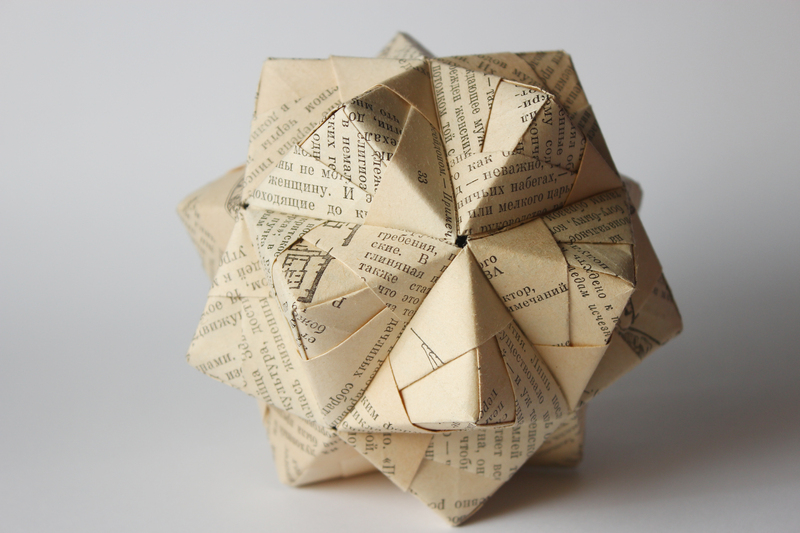Guidelines for Disposing of PPE Waste to Prevent Litter
The COVID-19 pandemic has brought Personal Protective Equipment (PPE) into the daily lives of billions. Masks, gloves, gowns, and face shields are now commonplace--not only in medical settings but also in public places and households. However, PPE waste disposal has emerged as a significant environmental challenge, leading to increased litter and potential health risks.
This article provides comprehensive guidelines for disposing of PPE waste to prevent litter, emphasizing practical actions everyone can take to protect both public health and the environment. Whether you're a business, health professional, or individual, understanding proper PPE waste management is essential in the modern world.
Why Effective PPE Waste Disposal Is Crucial
Improper PPE disposal results in widespread litter, clogged drainage systems, and increased risk of disease transmission. Additionally, non-biodegradable materials used in PPE threaten wildlife and marine ecosystems. Disposable masks, gloves, and face shields can persist in the environment for decades if not handled correctly.
- Environmental Impact: Single-use PPE often contains plastics and synthetic fibers, which break down slowly and release microplastics.
- Health Hazards: Littered PPE can harbor pathogens, endangering sanitation workers, children, and animals.
- Public Image: Visible litter from PPE damages the perception of cleanliness and safety in communities.

Understanding Types of PPE Waste
Before disposing of any personal protective equipment, it's important to recognize the different types of PPE and their specific disposal requirements:
- Masks: Surgical, N95, cloth, and disposable masks
- Gloves: Latex, nitrile, vinyl, and polyurethane gloves
- Face Shields and Goggles: Typically plastic, reusable or single-use
- Protective Gowns and Suits: Often made of synthetic, non-woven fibers
- Shoe Covers and Caps: Used in both clinical and general environments
Each type demands careful handling and separate PPE disposal guidelines to minimize contamination and environmental impact.
Key Guidelines for Disposing of PPE Waste to Prevent Litter
Adhering to the best practices for PPE waste management is essential. Below are actionable guidelines for PPE waste disposal for households, businesses, and organizations:
1. Use Dedicated PPE Disposal Bins
Designating special bins for PPE waste is a crucial step in containing potentially contaminated materials. These bins should be:
- Clearly labeled with signs like "PPE Waste Only" or "Biohazard Waste"
- Located in accessible areas near building exits, entrances, or bathrooms
- Equipped with a secure, closed lid to prevent windblown litter
- Regularly emptied and sanitized by cleaning staff with appropriate PPE
This prevents PPE littering in public spaces and encourages responsible behavior.
2. Segregate PPE Waste from Regular Trash
It is essential to keep PPE waste separate from general household or commercial waste. Mixing can lead to cross-contamination and complicate proper waste handling downstream.
- Designate a separate waste bag or container for used PPE products
- Store bags in a secure, dry place until collection
- If possible, use color-coded bags (e.g., red or yellow for medical waste) to signify PPE content
3. Safely Bag and Seal All Used PPE
Always double-bag PPE waste to minimize the risk of leaks or exposure during transportation and processing. Make sure to:
- Tightly seal each bag before disposal
- Avoid overfilling bags, as this can lead to breakage
- Wash hands thoroughly with soap and water after handling used PPE or touching disposal bags
4. Follow Local Waste Management Regulations
Regulations for PPE waste disposal often vary based on whether the waste is generated at home, in a business, or in a medical setting. Check your local authority's guidelines for:
- Designated landfill, incineration, or recycling facilities
- Scheduled collection days for medical or PPE waste
- Special reporting or documentation requirements for large waste generators
Improper disposal of PPE waste may result in fines or legal consequences in some jurisdictions.
5. Never Flush PPE Items Down the Toilet
Masks, gloves, and other PPE should never be flushed down the toilet or drain. These items do not break down like tissue paper and can cause severe blockages in sewage systems, contributing to water pollution and expensive repairs.
6. Discourage Littering Through Public Education
Educate the public with visible signage, announcements, and digital campaigns outlining the dangers of PPE litter. Messaging should include:
- The environmental impact of improperly discarded PPE
- Potential health risks for community members and wildlife
- Clear, simple steps for correct disposal
7. Promote Reusable and Eco-friendly PPE Where Appropriate
Where risks can be adequately controlled, advocate for the use of reusable masks and protective gear to reduce overall waste generation. Ensure that:
- Reusable masks are washed thoroughly after each use
- Reusable gloves and gowns are laundered or sanitized according to manufacturer guidance
- Users are aware of when it is necessary to switch to disposable PPE (e.g., for medical procedures or caring for an infected person)
Specialized PPE Waste Disposal: Healthcare vs Household
Healthcare settings require stricter protocols due to high contamination risk. Households can generally follow simplified guidelines unless someone is quarantined or recently ill.
Disposing of PPE in Healthcare Facilities
- Dispose of all single-use PPE in clearly marked biohazard containers
- Use autoclaving, incineration, or other approved sterilization/disposal methods
- Ensure waste handlers wear appropriate PPE and receive training in infection control
- Adhere strictly to local, state, or country-specific medical waste policies
Disposing of PPE in Households
- Place used masks, gloves, and wipes in a plastic bag, tie securely, and dispose of with regular household waste unless local rules specify otherwise
- If someone at home is sick or in quarantine, store used PPE for 72 hours before disposal, as recommended by many health authorities
- Never reuse disposable masks or gloves
- Wash hands immediately after handling used PPE
Environmental Solutions for PPE Waste
Tackling the PPE litter crisis requires not just proper disposal, but also innovation and community support. Here are some approaches being adopted worldwide:
1. PPE Recycling Initiatives
Some companies and municipalities have launched PPE recycling programs that accept masks, gloves, and face shields for processing into new materials. Specialized recycling bins and collection points are provided in public spaces.
2. Biodegradable PPE
Research is ongoing into biodegradable masks and gloves made from natural fibers or compostable materials. These break down more quickly, reducing environmental impact when littered or disposed of improperly.
3. PPE Waste-to-Energy Conversion
In some areas, incineration plants are adapted to safely convert collected PPE waste into energy, minimizing landfill use and reducing pollution.
How to Encourage Responsible PPE Disposal
Preventing PPE litter is a shared responsibility. Below are actionable strategies for individuals and organizations to encourage proper PPE disposal:
- Lead by Example: Always dispose of your own PPE correctly and remind others around you to do the same.
- Provide Adequate Bins: Offices, shops, schools, and transit stations should ensure bins are readily available and well-maintained.
- Community Clean-Ups: Organize regular clean-up drives focusing on collecting PPE litter from streets, parks, and waterways.
- Report Issues: If you see overflowing bins or widespread litter, report it to local authorities so prompt action can be taken.

Frequently Asked Questions about PPE Waste Disposal
How should I dispose of a used face mask?
Place the used mask in a sealable plastic bag, tie securely, and place in a designated PPE or general waste bin. Never discard masks in public spaces or flush down the toilet.
Can I recycle used PPE?
Most municipal recycling programs do not accept used PPE yet, as contamination risk is high. However, specialized PPE recycling programs may operate in your area--check with your local waste authority for details.
What is the safest way for businesses to handle PPE waste?
Provide color-coded, clearly labeled bins. Ensure regular collection, correct bagging, and staff training on infection prevention. Adhere to all relevant legal and health authority requirements for hazardous or infectious waste.
Are there eco-friendly PPE options available?
Yes, some manufacturers now offer biodegradable or reusable PPE options. These are a more sustainable choice, especially when disposable PPE is not strictly necessary.
What can individuals do to reduce PPE litter?
- Carry a small bag for used PPE until you can dispose of it properly
- Encourage friends and colleagues to follow PPE disposal guidelines
- Choose reusable, washable PPE where safe and appropriate
Conclusion: A Call to Action for Better PPE Waste Management
With billions of masks and gloves being discarded each month, proper PPE waste disposal has never been more important. Following the simple guidelines for disposing of PPE waste to prevent litter can have a major positive impact on both public health and the environment. From using correct bins and safe bagging practices to driving public awareness and supporting innovative solutions, everyone has a role to play.
By taking responsibility--at home, in your workplace, and in your community--you help break the cycle of PPE litter and promote a cleaner, healthier world for all.
- Always dispose of PPE in designated bins
- Never litter or flush PPE items
- Promote education and responsible behavior in your area
Let's work together to ensure that the tools we use to protect ourselves do not become a danger to our planet. Dispose of PPE waste properly and help prevent litter today!
